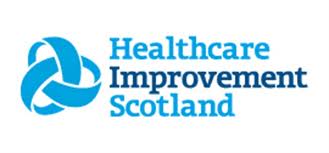You are here
- Home
- Conferences
- Conference 2012
- Patient-reported outcome measures (PROMS)
Patient-reported outcome measures (PROMS)
Can people with learning disabilities participate?

Thilo Kroll, Keepa Jahagirdar, Sally Wyke and Karen Ritchie
Researchers at the Universities of Dundee and Glasgow and Healthcare Improvement Scotland
What is the problem?
The NHS Health Service wants to make sure it provides good health care. The NHS wants to know from patients how good their treatment is and if it works. The NHS uses questionnaires to ask people about their healthcare. These questionnaires are called ‘patient-reported outcome measures’ or PROMS. But can people who have difficulties with reading fill them out?
What we did
- We looked at many different questionnaires in the research literature to see if people with learning disabilities have been asked to fill them out. We looked whether the questionnaires had been tested with people with learning disabilities.
- We asked people with learning disabilities to tell us what they thought about two questionnaires.
- We asked health professionals about their views on how these questionnaires can be used with people with learning disabilities.
What we found
- None of the questionnaires we found in the literature had involved people with learning disabilities.
What we found in talking to people with learning disabilities and doctors
People with learning disabilities CAN complete questionnaires BUT:
- they need extra time
- they want to fill out the questionnaire at home
- they want a person they trust to help them
- they want larger print, so it is easier to read.
Doctors said questionnaires would be useful if:
- they help them in providing the best care to all patients.
What does all this mean?
- Questionnaires have not had the input from people with learning disabilities.
- That is why many questionnaires are not easy to use.
- If people with learning disabilities cannot fill out the questionnaire, they are left out.
- Being left out means they cannot contribute to healthcare improvement. This is not fair.
- And it is against the United Nations Convention of Rights of Persons with a Disability.
- The Convention says that all people should have the right to health care.
- The Convention says that better data should be collected.
What next?
- We are developing a guidebook for health professionals how they can use questionnaires with people with learning disabilities.
- We will look towards developing better questionnaires.
- We will involve people with learning disabilities in questionnaire development.
Contact us
About the Group
If you woud like to get in touch with the Social History of Learning Disability (SHLD) Research Group, please contact:
Liz Tilley
Chair of the Social History of Learning Disability (SHLD) Research Group
School of Health, Wellbeing and Social Care
Faculty of Wellbeing, Education and Language Studies
The Open University
Walton Hall
Milton Keynes
MK7 6AA
About the website
If you have any feedback or would like to report a problem with the website, please contact WELS-Research-Admin@open.ac.uk.